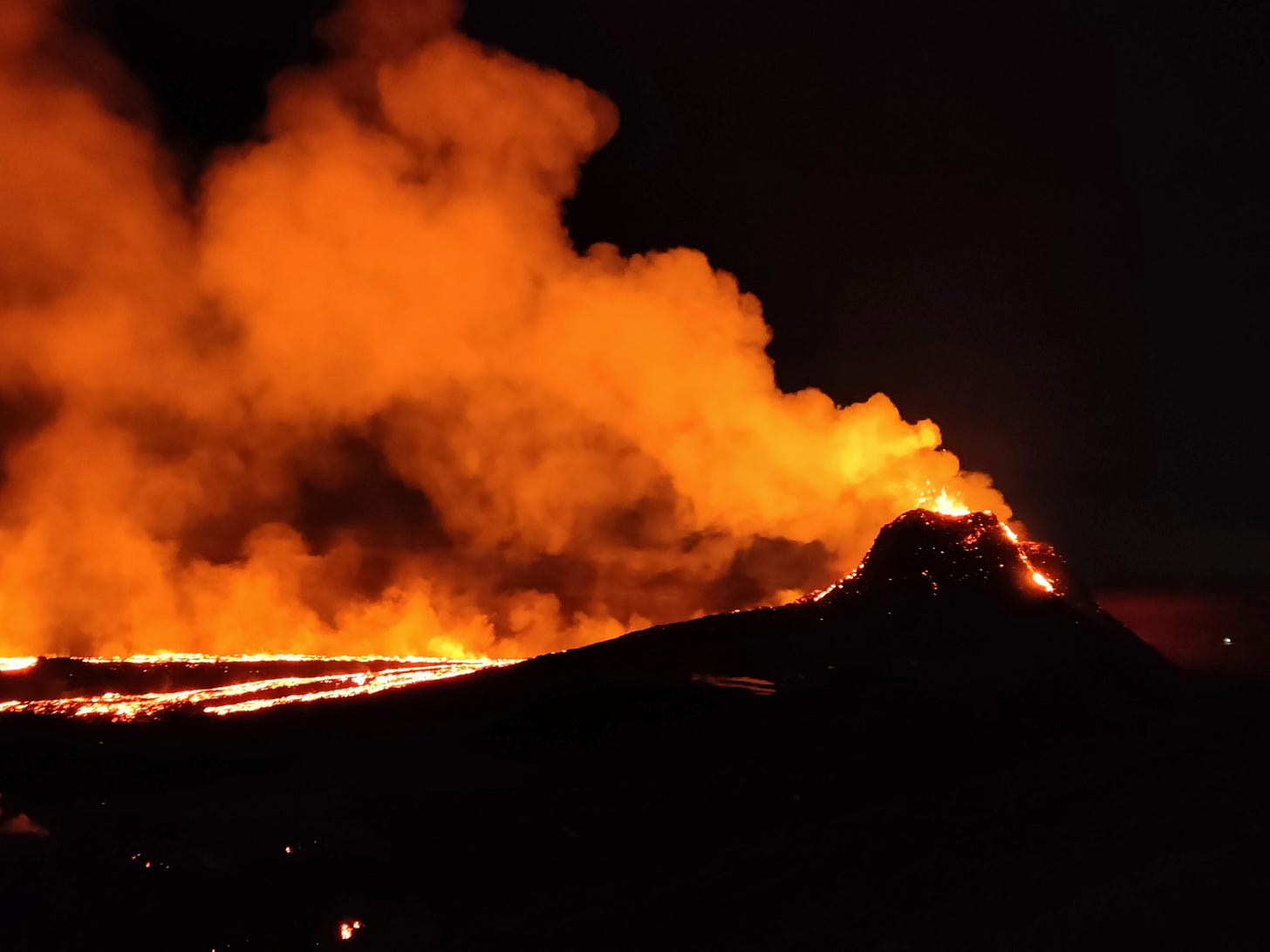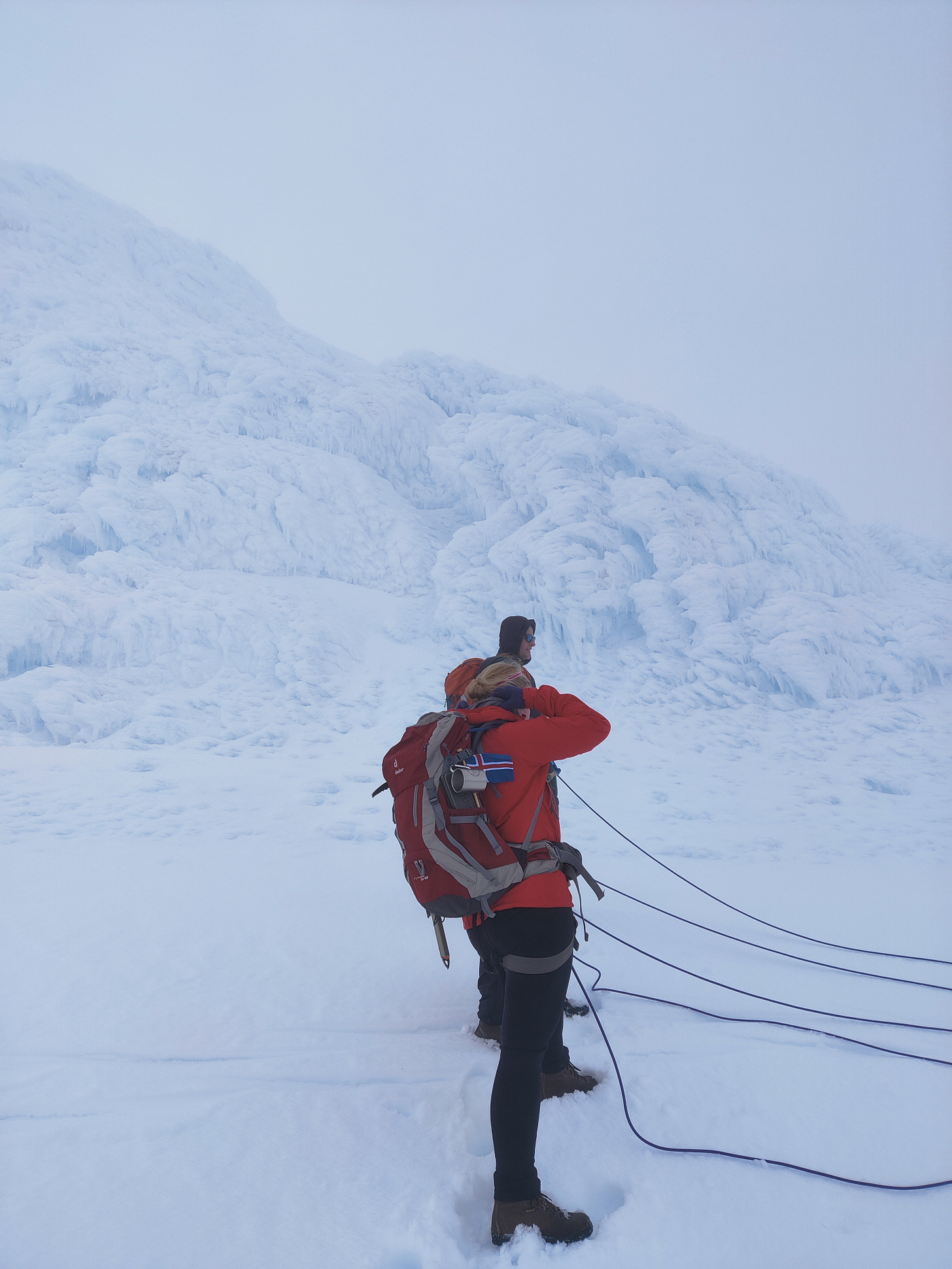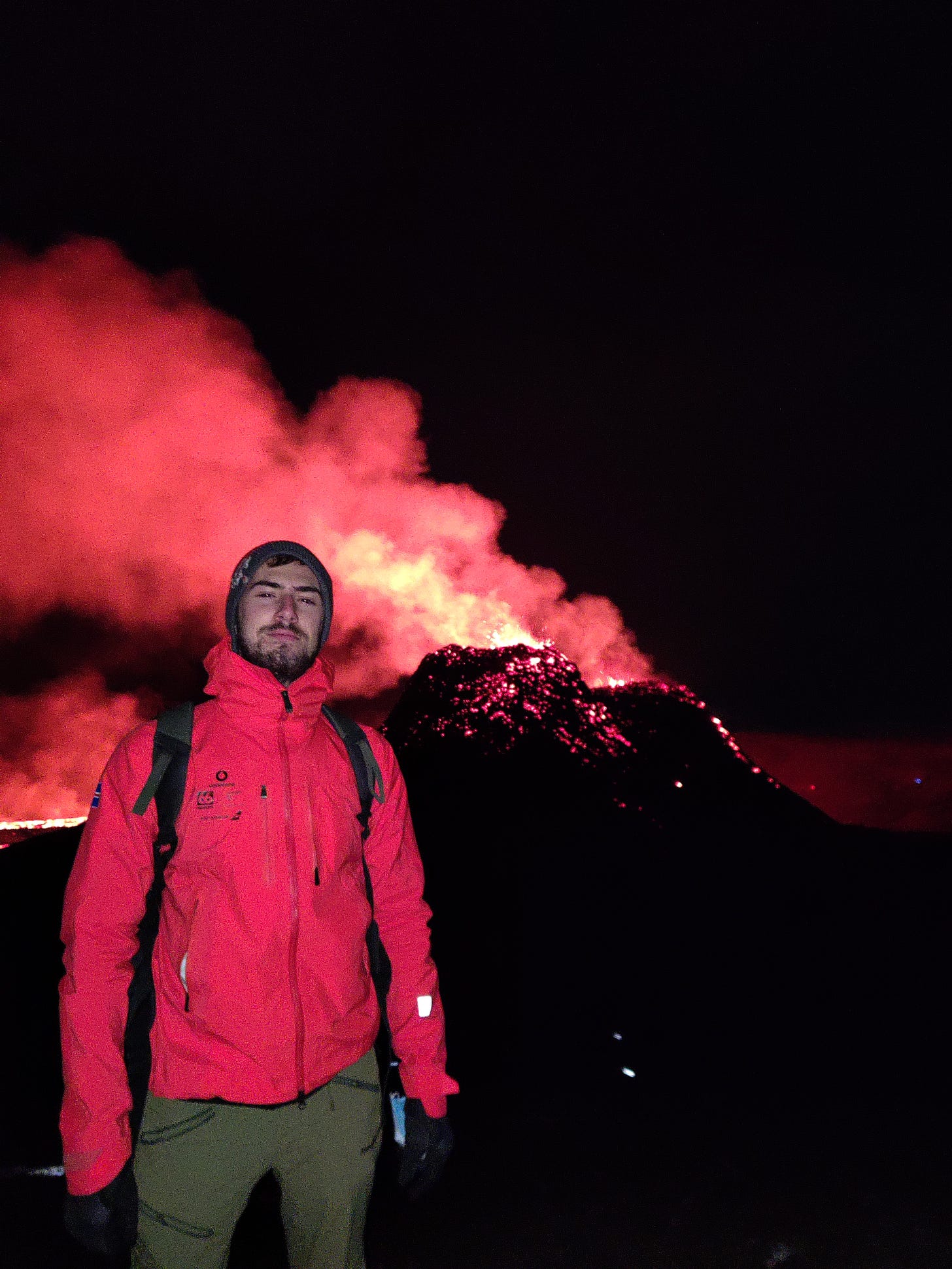Everything will be alright in Iceland
On volcanoes, crises, and what we can learn from Icelanders
I was recently asked one of the best questions someone who's lived in a bunch of countries could be asked, surprisingly for the first time:
What did you learn from each place you lived in? What do people do there that you think could be applied elsewhere?
For Iceland, I believe I said something about people's contact with nature. Just about every Icelandic person has been on a hike, and they all seem to have a level of admiration and care for nature that's not as widespread elsewhere.
But in light of the most recent volcanic eruption, I got to thinking about something else.
There's a saying in Icelandic - þetta reddast - that means "everything will be alright", and, while many languages have a similar expression, this one is really embedded in Icelandic culture.
I remember the first time I felt an earthquake in my life, back when I lived there. I was reasonably worried, and started remembering things I'd seen as a child.
"Should we get under a table?" — I asked my Icelandic girlfriend at the time. She didn't seem too phased, and before she had a chance to answer, the quake stopped. "Well, I guess it's all good now".
There was also the time when I was convinced to “walk up” (turns out it was actually climb up) one of the ice pinnacles atop of Snaefellsjökull. At the time I had no experience with crampons or an ice axe at all, yet the group of also amateurs from my ex-girlfriend's company were all pretty chill about the situation and pitched it as a seemingly easy thing.
On the way up there, quite a few of the people got scared, and I for one nearly lost my oversized crampon, which came off my foot and caused me to slide down this steep ice slope that led straight into a crevasse at the bottom. I managed to stop myself with an ice axe self-arrest, saved by having used my free time in the past to watch alpinism videos with self-arrest tutorials.
The thing is that living in Iceland requires a unique type of mentality, even if the Icelanders themselves don't necessarily think about it much.
To live essentially on top of a volcano or with a massive volcano nearby requires a mix of belief that everything will be okay, but also determination and preparedness to make it be so.
And in some ways you almost need to just to be willing to start over.
Before I lived there, the first time I visited Iceland I stayed in this farmer's cabin in the South, and he told us about how despite him being okay and his house staying up, he lost all of his sheep due to the ash from the 2010 Eyjafjallajökull eruption.
If you don't believe everything will be alright in the end - how do you keep going?
Yet despite the expression seemingly tossing the responsibility of making things good up to fate, it's also your responsibility to make it alright.
I was once told Icelandic consultants are particularly wanted during crises. They operate well in the post-catastrophe chaos, bringing both a necessary optimism and also an ability to prioritize and stay rational.
The Fagradalsfjall eruption in 2021, which happened while I was still living there, marked the end of around 800 years of no volcanic activity in the Reykjanes peninsula, an area of significant economic importance that's also dangerously close to where the vast majority of Icelanders live - the Reykjavík capital region.
But having some of the world's best geologists and volcanologists in the world, a well-trained Search & Rescue team, and a conscious population means Iceland feels ready to deal with this, and that everything will be okay.
You see this from how fast Grindavík, a town potentially in danger, was evacuated ahead of this 2023 eruption, an event somewhat analogous to the heroic effort of the Heimaey evacuation in 1973, where an entire island was evacuated in just a few hours after the alarm sounded for a surprise eruption. Plus they also managed to save the harbor, by pumping seawater and spraying it into the lava to redirect it.
I say all this to say that Icelanders are possibly better prepared than most of us to deal with life.
Because the Icelandic antifragility built up from generations of living in an island that seems to not want you there should not be mistaken as something applicable only in their little island.
It has made Icelanders well-prepared to deal with an inevitable part of all of our lives — crisis.
By contrast, Brazilians love to mention how we have no natural disasters. We don't get earthquakes, have no active volcanoes, no hurricanes, nothing.
Yet every year thousands of homes are lost, people die, and infrastructure is damaged just from the repercussions of the comparatively predictable rainy season.
I'm sure that both for our country, but also our personal lives, we have a lot to learn.
Because in my experience, despite its inherent optimism, þetta reddast often doesn’t imply “it’ll be taken care of”, but rather “we’ll take care of it”.







Independent People, by Haldor Laxness. Won the Nobel Prize for literature in the 50’s sometime. Shows how they got there. Excellent read.
You have captured the spirit of living in Iceland. I would add that many of us are woefully unprepared for the many dangers of our country. Even so, the mindset of "Þetta reddast" is part of the common consciousness.
Being cool under pressure is, I believe, a trait that is part of our DNA. I have worked with people from across the world. There is no place where it is as common to find as many cool cats when everyone's hair is on fire.